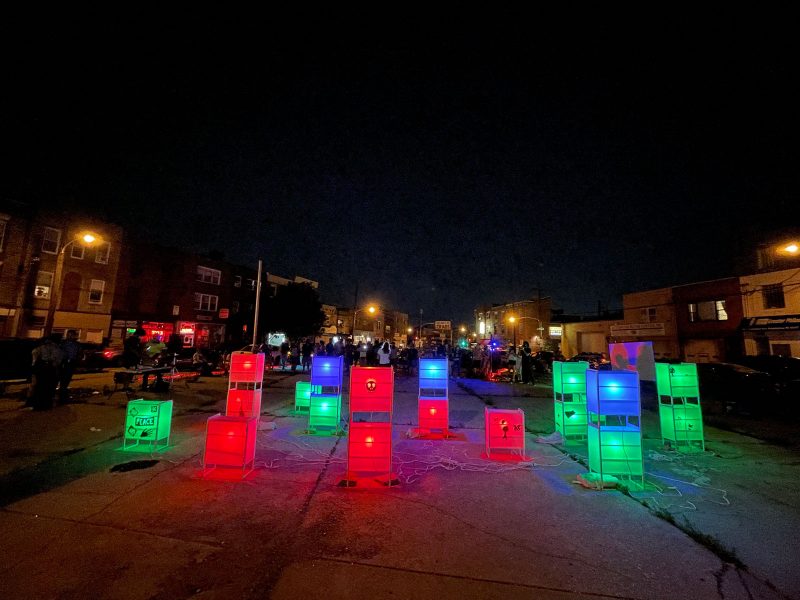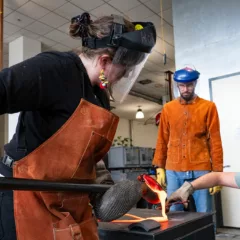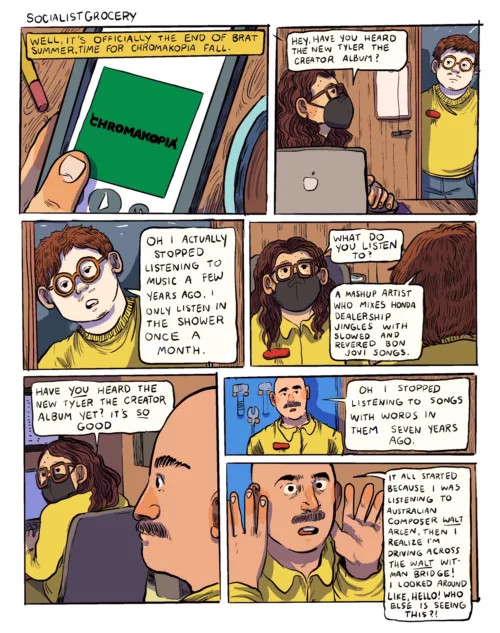
Last week, Artblog announced Added Velocity‘s five 2021-2022 awardees, who were each directly awarded $15,000 in funding to further their community-engaged and activist projects already funded under the Velocity Fund. This week and next week, we’re publishing short interviews with each of the awardees!
First up, we speak with Ana Cecilia Gonzalez, lead artist for the project Alumbra, a community of women building “inclusive and accessible neighborhoods through artistic lighting, promoting the expression of identity and the development of the community.” Their social initiatives help create safe, and accessible, and well-lit public spaces for people, in particular youth, to convene at night. With funding from Added Velocity, “Alumbra will expand the scope of its community impact by collaborating with the youth to create a night time destination with a long-term light art installation.”
Make sure to check back for the next four Added Velocity artist spotlights, coming this week and next week on Artblog!
Interview with Ana Cecilia Gonzalez
Roberta Fallon: I love the ambition of this project: To set up a long-term safe space with lighting for youth, and support it with programming. In the best of worlds, how do you see sustaining the project long-term?
Ana Cecilia Gonzalez: The core objective of Alumbra is placemaking, an approach that not only relies on community input but on a unified outcome based on the engagement of its community. Throughout the process of transforming a space into a local night-time destination the participants feel invested and this awakens a sense of place ownership, which is key for the management of shared public spaces.
Our methodology requires engaging and empowering often neglected youth to participate in improving their livability through their creative energy, from the definition of the problem to planning its solution, talking about the project with community members, and advocating for it with local authorities. The support of the local government/municipality is key for a long-term community owned place to sustain.
RF: How did you get interested in lighting? And especially, how did you get to think of lighting as a social justice practice?
ACG: Alumbra was designed by a youth development activist and a lighting designer.
In cities, a growing percentage of activities happen in the hours after dark, so lighting plays a key role in our social and community development. Young people especially tend to go out at night, but they lack safe and attractive public spaces to get together, create ties and make a social network based on their identity.
We work with light as a tool for place making because it is functional, it increases visibility and prevents crime. We use artistic lighting to create destinations, attractive places that encourage busy streets, bringing people together and thus providing community cohesion. .
Lighting is stimulating, it can evoke emotion and convey meaning. We collaborate with the youth so they can use lighting as a tool for identity, expression and transformation. And most importantly by using light we promote creativity, developing skills and opportunities for our next generation.
RF: Any other thing you’d like to tell me about yourself or the project?
ACG: Neglecting youth is to neglect the future of our society and wasting their inherent leadership potential. We are confident that, if given the chance, they will become change agents in their communities and society.









